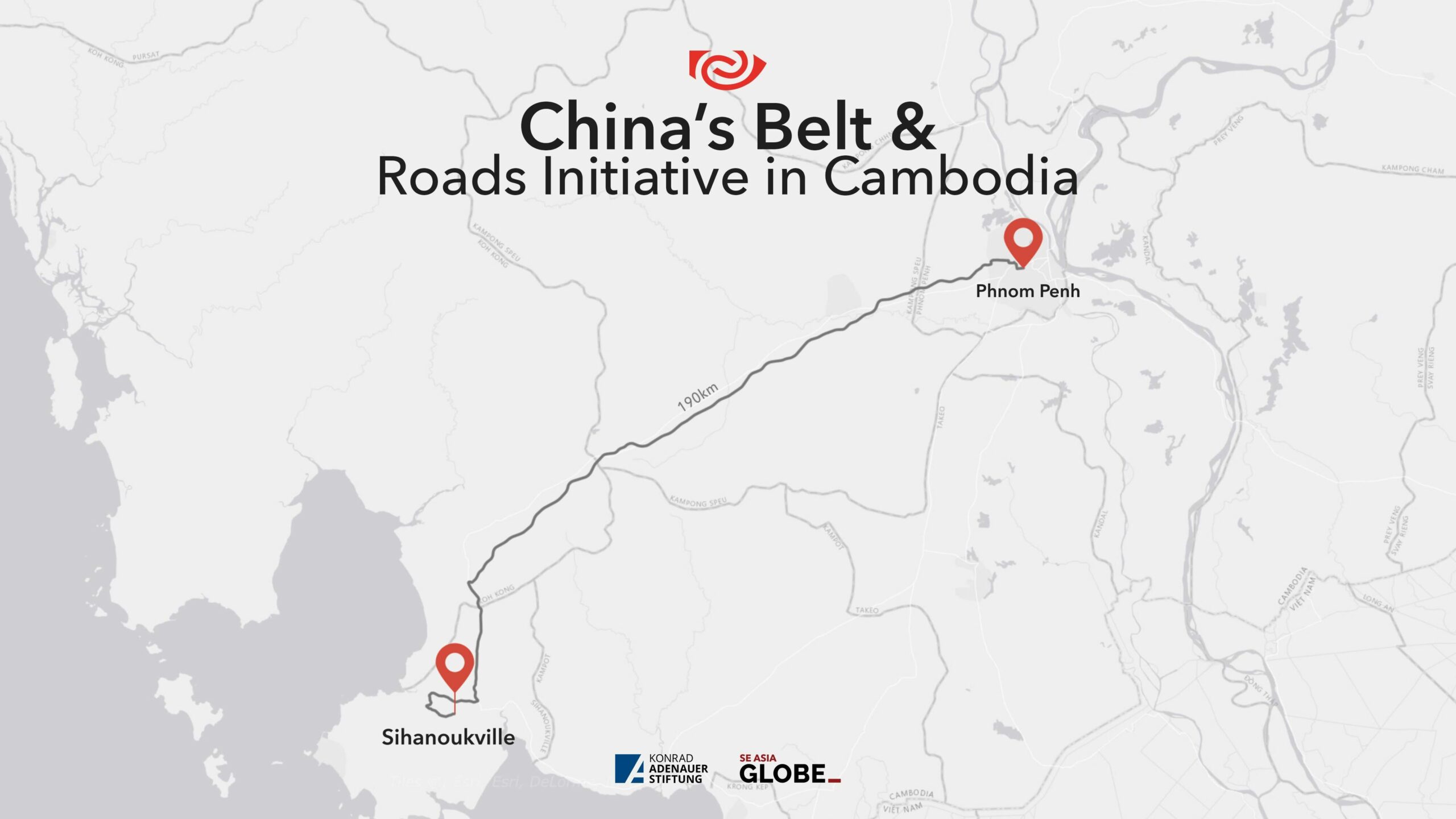The Belt and Road Initiative (BRI) started with lofty ambitions.
This massive China-led infrastructure project has been called one of the most “one of the most ambitious infrastructure projects ever conceived.” The vast network of overland corridors and maritime shipping routes was announced in 2013 by president Xi Jinping, and based on the Silk Road, one of the world’s original trade routes and a critical source of connectivity between Asia and the Mediterranean and European world.
The BRI is a critical part of modern Cambodia’s trade ties and its economic relationship with China. It is never far from domestic news, but there is still misunderstanding and confusion over what the initiative really means for the Kingdom’s economic future.
Now, in the first of a two-part series on Cambodia’s economic relationship with China, Anakut podcast is delving into the complexities and realities of the BRI in Cambodia and debuting a brand new format. Join Globe Editor-in-Chief Andrew Haffner and his co-host Dy Sereyvoleak as they step out of the studio to get present-day perspective on Cambodia’s future.
To help explore some key concepts of BRI, today’s episode focuses on the new expressway running between Phnom Penh and Sihanoukville on the coast, the location of the country’s only deep water port and the site of ambitions to make a second major city in the Kingdom.
The team travelled down the expressway to see if its aspirations matched the reality and spoke to experts including China Public Policy Fellow Hong Zhang from the Harvard Ash Center for Democratic Governance and Innovation, on the nature of Chinese projects in Cambodia and how the BRI fits the eastern superpower’s brand.
Despite bilateral agreements between various BRI countries and China’s strong focus on economic diplomacy and outreach, a cohesive arrangement of all BRI projects around the world does not exist. Zhang encouraged listeners to think of the initiative more as a “rallying call” for development, as opposed to a methodical programme.
Meanwhile, Prime Minister Hun Sen is calling on his Chinese counterparts for funding over the next couple of years as he pushes for Cambodia’s ascent from a low-income to a middle-income country. But while positive aspects of improved infrastructure are clear, underlying problems with land tenure and other rights could stifle success. The team spoke to residents living around the expressway ramp to hear how the construction will impact their lives and their hopes for the future.
Development in the Kingdom relies on investment. But investment comes at a price. As the Anakut team travels down the expressway, they share a journey of a country and its people, driving towards new economic development, with Beijing and its investment at the wheel.


